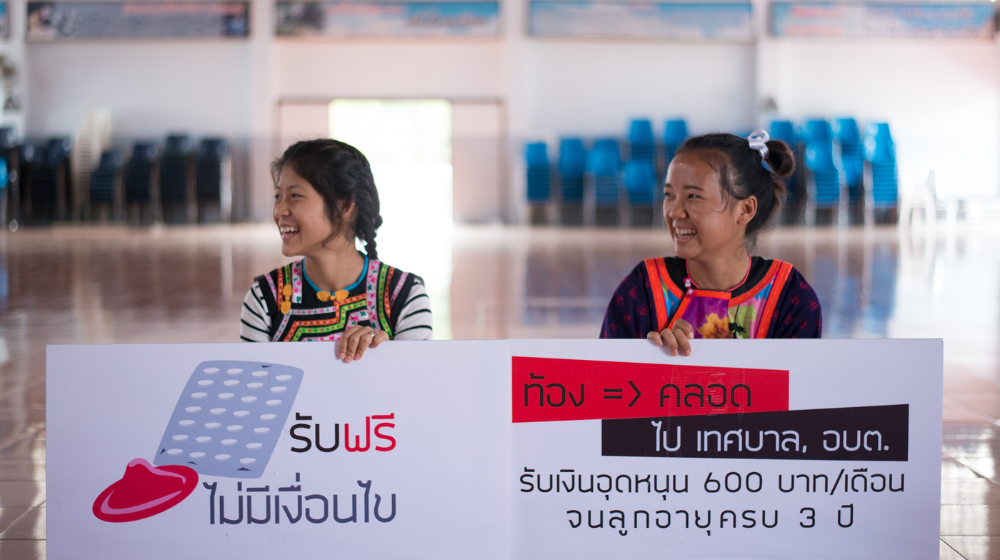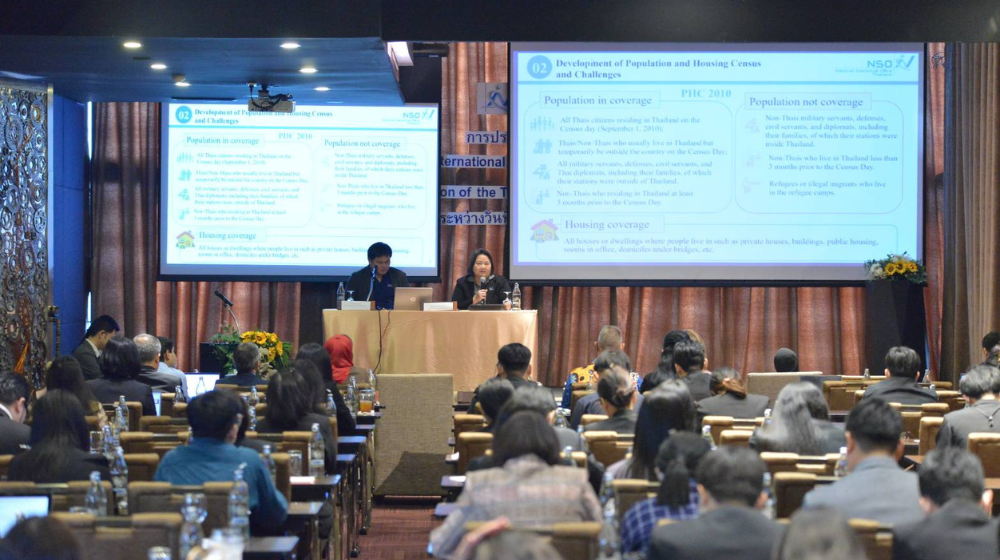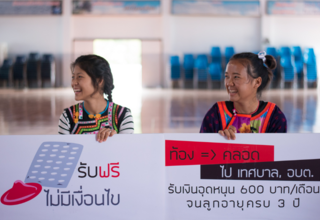Access to healthcare is a fundamental right for all citizens, but how safe are the hospitals themselves, in the face of escalating environmental damage from climate change?
A new assessment report, jointly released by the United Nations Population Fund (UNFPA) and Family Health International (FHI 360), shows that a number of hospitals and healthcare facilities in Thailand are vulnerable to the effects of climate change. The study aims to find ways for policymakers to improve and ensure better access to healthcare, which is also climate-resilient.
The report, “Green Viability and Climate Vulnerability Assessments in Healthcare-related Facilities in Thailand”, surveyed the potential impacts of climate change on four healthcare institutions, namely Rayong Hospital, San Sai Hospital and Suthep Community Health Center in Chiang Mai, and Bueng Yitho Medical and Rehabilitation Center in Bangkok’s nearby province of Pathum Thani.
Associate Professor Dr. Tatchalerm Sudhipongpracha, who led this study, found that the four hospitals have climate vulnerabilities. This will disrupt access to healthcare, especially for vulnerable people.
Rayong Hospital, for example, experiences persistent flooding and flash flooding and has some risk of experiencing water scarcity. At the same time, San Sai Hospital is more likely to experience air pollution than flooding. When looking at the overall picture, however, Tatchalerm believes that climate change is posing threats to all healthcare facilities in Thailand. Most of the hospitals surveyed also have much room for improvement in their infrastructure, technologies, manpower and facilities, to increase their capacities to cope with climate change and environmental disasters.
“If health care facilities are not resilient to climate change, how can we expect communities and the people to be resilient?” he asked.
“For Thailand, the whole country is in danger. If we are talking about air pollution, that’s the entire country being affected. In terms of rising sea levels, the coastal areas are at risk, of course, and I don’t think Thailand has a clear plan fordealing with this. In terms of floods, it’s a perennial problem everywhere, every region, especially in the Isan region, in Bangkok and its vicinities.”
As improving climate-resilient healthcare requires a collaborative approach, a list of policy recommendations for national-level agencies have also been proposed. These include a clear government policy, allocating specific funds for climate mitigation and adaptation in the public health sector and facilitating collaboration between health-related and environmental agencies. Tatchalerm believes that such issues remain the biggest challenges to improving climate-resilient healthcare.
“[The problem is] the lack of coordination, budget, the national budget allocation process that doesn’t make sense and the absence of earmarked funding for climate change disasters. These three issues have to be resolved, otherwise, we will just dance around the bush. There will be no sustainable solution to climate induced disasters or any undesirable events that might happen in the near future.”
Meanwhile, the Public Health Ministry’s Department of Health revealed its roadmap for adapting to climate change. Their strategies include multi–sectoral collaboration and improving the overall healthcare system to cope with climate change. Another strategy is to improve sustainability, including waste and energy management in hospitals, which will be expanded to sub-district healthcare facilities in Thailand later on.
Siriluck Chiengwong, Head of Office at UNFPA Thailand, believes that the study’sfindings and policy recommendations will encourage stronger collaboration among various government agencies, to address climate change and build healthcare systems which are more climate-resilient. Even though she acknowledges the Thai government is trying to address climate change in every aspect of society, there’s still a lot more to be done.
“Climate change affects people’s lives every single day, most importantly the vulnerable in the Thai population, especially those who live in rural areas with limited access to healthcare, which they are actually entitled to as Thai citizens.” Siriluck explains.
“This study is to identify the gaps and the challenges and also to provide recommendations on how to address these gaps and how to ensure that everybody has access to good health care equally.” Siriluck said.
Nujpanit Narkpitaks, Associate Director, Environment and Climate Change of FHI360 also believes that the existing weaknesses in the healthcare system,outlined in the study,will help decision-makers reconsider their policy-making strategies to enhance the resilience of healthcare vis a vis climate change.
“Climate consideration is very critical in policy making,” Nujpanit explains. “Education and awareness-raising among the decision-makers and concerned stakeholders are really critical in fostering multi–sectoral collaboration, in order to achieve climate resilience among healthcare facilities and healthcare systems.”
By Thai PBS World, Link to news.




